
Climate Emergency Institute
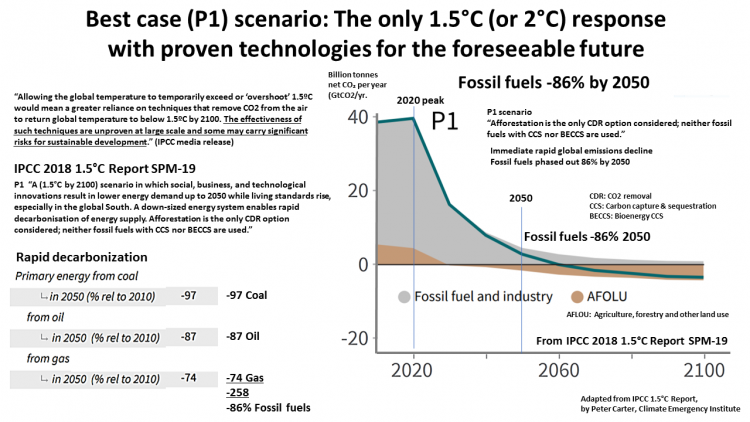
IPCC Oct. 2018 1.5°C Report
IPCC 2018 Special Report 1.5°C
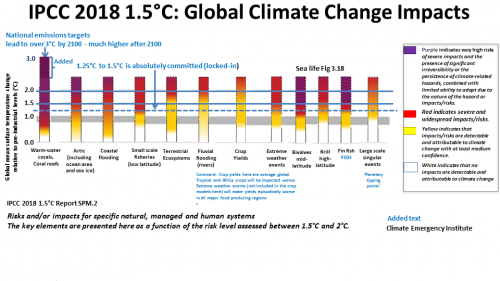
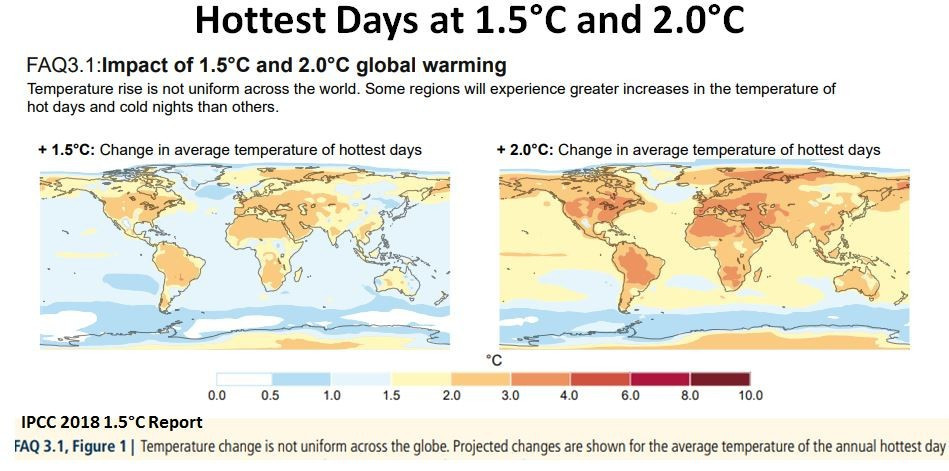
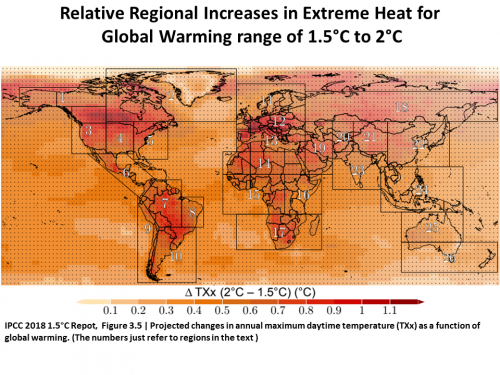
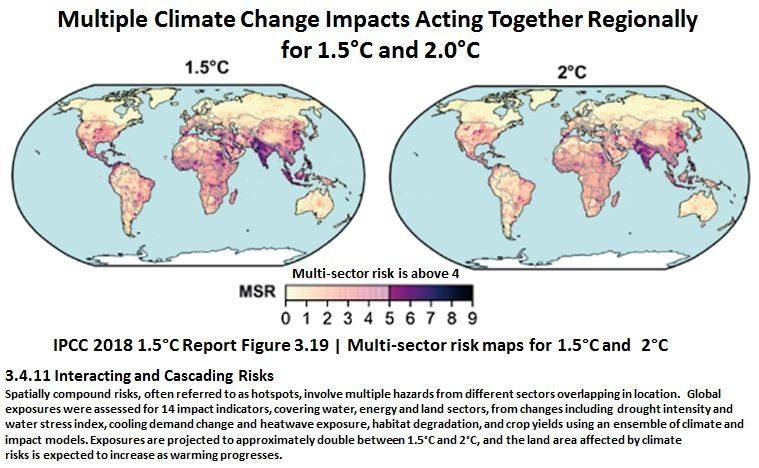
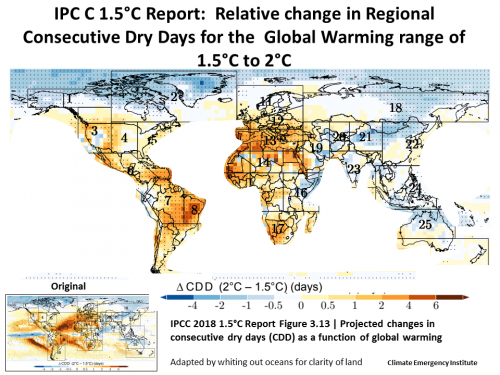
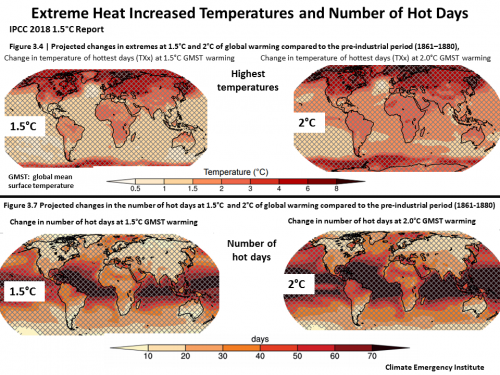
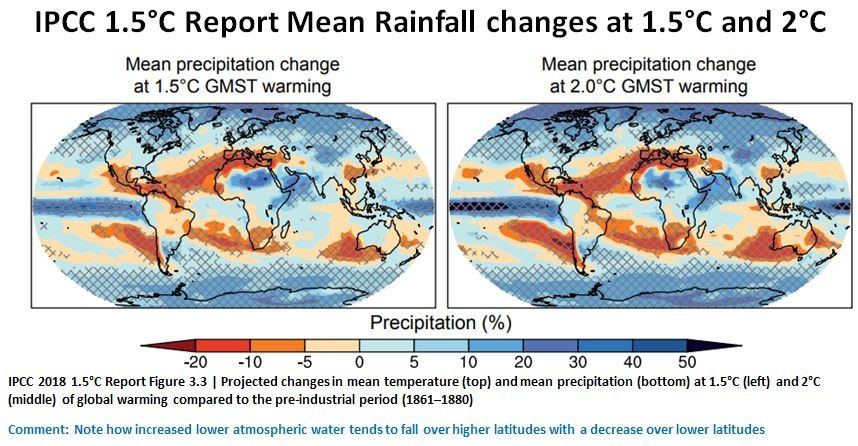
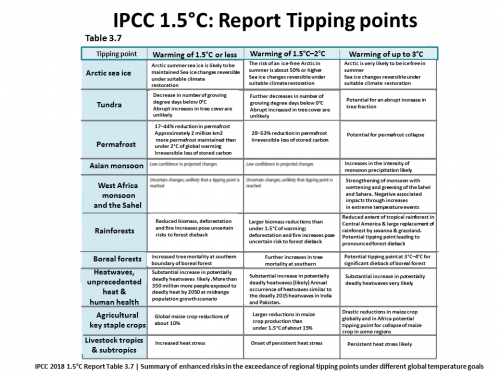
IPCC 2018 1.5°C Report, Box 3.6
IPCC 1.5°C Report: Economic Damages
from Climate Change
DAMAGES The mean net present value of the costs of damages from warming in 2100 for 1.5°C and 2°C (including costs associated with climate change-induced market and non-market impacts, impacts due to sea level rise, and impacts associated with large-scale discontinuities) are $54 and $69 trillion, respectively, relative to 1961–1990.
Values of the social cost of carbon vary when tipping points are included. The social cost of carbon in the default setting of the Dynamic Integrated Climate-Economy (DICE) model increases from $15 tCO2 to $116 when large-scale singularities or ‘tipping elements’ are incorporated. These calculations excluded the large health co-benefits that accrue when greenhouse gas emissions are reduced
The economic damages of climate change in the USA are projected to be large, the USA will lose -0.1 to 1.7% of the Gross Domestic Product (GDP) at 1.5°C warming.
from Climate Change
DAMAGES The mean net present value of the costs of damages from warming in 2100 for 1.5°C and 2°C (including costs associated with climate change-induced market and non-market impacts, impacts due to sea level rise, and impacts associated with large-scale discontinuities) are $54 and $69 trillion, respectively, relative to 1961–1990.
Values of the social cost of carbon vary when tipping points are included. The social cost of carbon in the default setting of the Dynamic Integrated Climate-Economy (DICE) model increases from $15 tCO2 to $116 when large-scale singularities or ‘tipping elements’ are incorporated. These calculations excluded the large health co-benefits that accrue when greenhouse gas emissions are reduced
The economic damages of climate change in the USA are projected to be large, the USA will lose -0.1 to 1.7% of the Gross Domestic Product (GDP) at 1.5°C warming.
PDF of IPCC 1.5C Table 3.2 Global and regional climate changes and hazards
PDF of IPCC 1.5°C Report on food security
PDF 3 pages of IPCC 1.5°C Report essentials
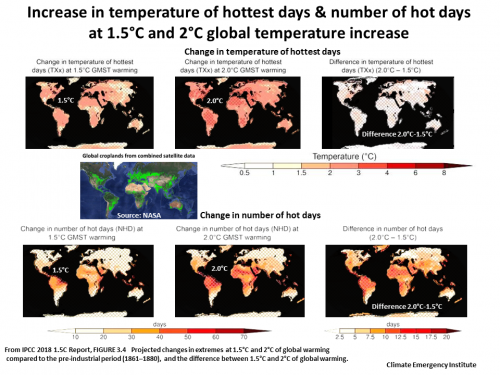
The report shows with certainty that 1.5°C is globally disastrous but 2°C is total planetary catastrophe
IPCC video 1.5°C Report
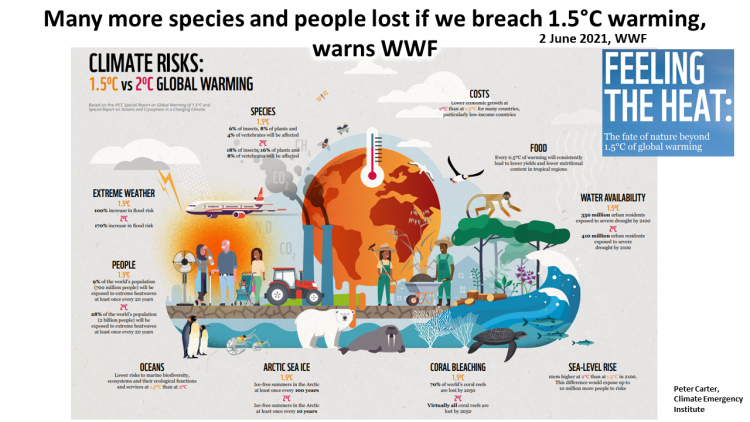
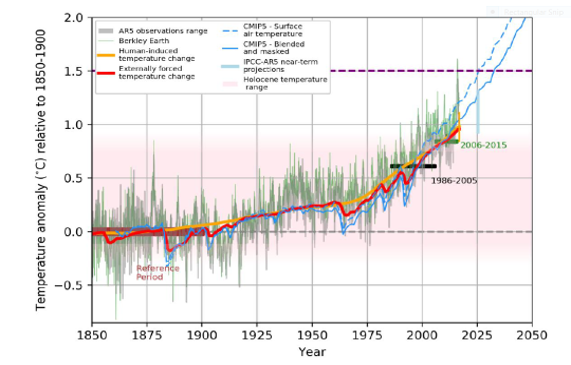
MITIGATION (best-case P1)
- Immediate (2020) rapid decline in global emissions
- By 2030 a 50% drop emissions
- By 2050 near zero Fossil fuel energy
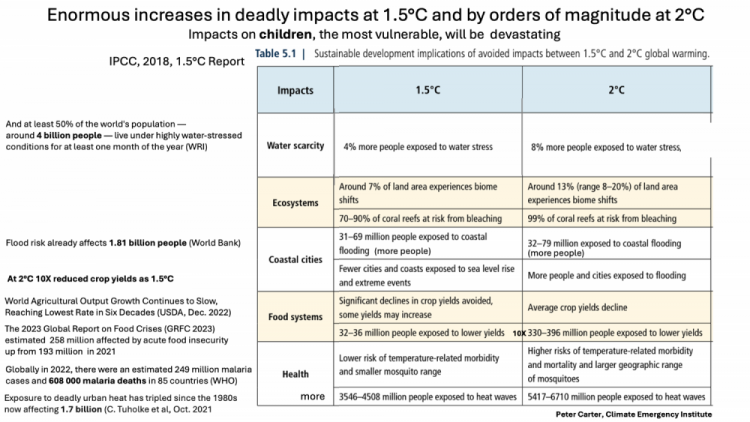
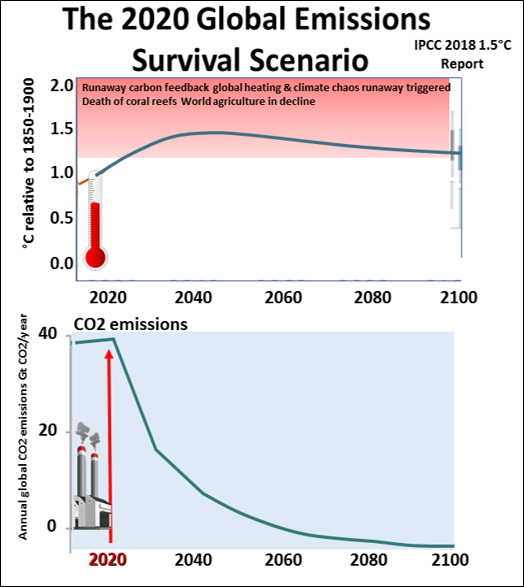
Global warming on high emissions scenario
(as today) projected to 2050
(as today) projected to 2050
Mainly by report images

Click image For clear
pop-up
pop-up
Double click here to edit this text.